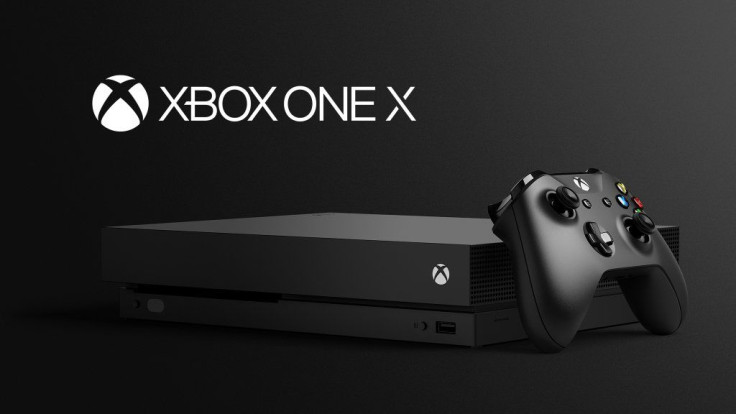Xbox One X is the most powerful games console ever made, and, in that sense, it has a lot in common with high-end gaming PCs. However, while speaking with Gamasutra , Microsoft corporate VP Mike Ybarra made clear that, while similar, there’s no true competition between platforms.
Ybarra’s first order of business was to explain the simplistic nature of porting games to Xbox One X.
“You need 4K textures,” Ybarra said, “but we saw that a lot of game companies were making 4K textures anyway for the PC. So we took our PIX tool, for example, which is our graphics analyzer that we use on console. We distribute that on Windows so that when they create those assets, they're using a common set of tools so that the debugging and the optimization works across PC and console.”
This crossover is also present in the fact that Xbox One X uses traditional RAM, 9GB of which is available for developers when making games. Unlike the original Xbox One, the X is “getting rid of ESRAM and going just straight to flat RAM.” This time around, “it’s all X86,” he said,
Given those obvious commonalities, Ybarra sees the Windows 10 operating system as a thread that ties PC and Xbox One together. “Windows has a great ecosystem with Steam and other distribution properties for getting games,” Ybarra admitted. “I would say, we don't think of it as this ‘versus,’ because Windows runs on both.”
This mentality goes a long way toward understanding why Microsoft hasn’t released a single Xbox-exclusive game since the launch of its Play Anywhere program last year. Because both PC and Xbox run Windows, Microsoft essentially sees them as two different versions of the same platform. As such, there’s no harm in Microsoft perception or finance for its Xbox and PC game libraries to mirror one another.
Ybarra reiterated this belief when discussing why a high-end console variant like the Xbox One X exists. In Microsoft’s larger vision, it’s all about offering consumers a continuum of products that use its Windows base.
“We look at it as, ‘Who are the classic gamers out there?’ There are people that want $249 value, and people that want the absolute most premium thing in the living room, and then people that will spend anywhere from $1,500 to $5,000 on Windows PCs...We want to have products across that whole spectrum.”
In that regard, Xbox One X occupies a rather curious place in the hardware maker’s lineup. It’s meant for folks who want PC-like power without the occasional compatibility difficulties PC gaming brings. The question that remains, however, is whether that segment of the market is large enough to warrant the release of an entirely new product. With PS4 Pro offering 4K-like visuals for $100 less than Xbox One X, competing with PC might be the least of Microsoft’s concerns.
Xbox One X releases Nov. 7 for $499.
Do you think Xbox One X competes with the PC games market in any way? Will Xbox One X’s sales be stunted by PC growth? Tell us in the comments section.




![Best Gaming Mouse For Gamers With Smaller Hands [2025]](https://d.player.one/en/full/227430/best-gaming-mouse-gamers-smaller-hands-2025.png?w=380&h=275&f=fdcf47c1c5fc58d1e41d3be505c12568)













